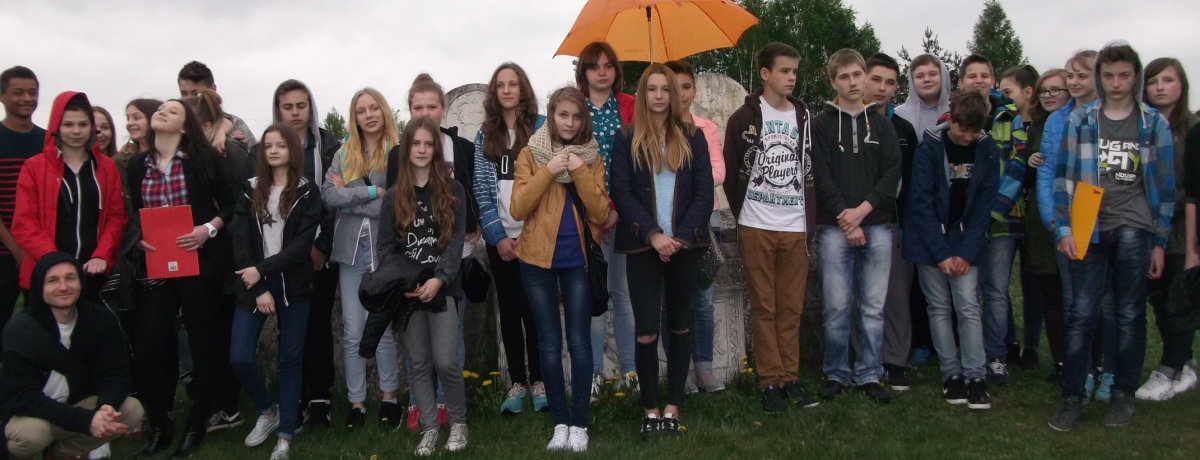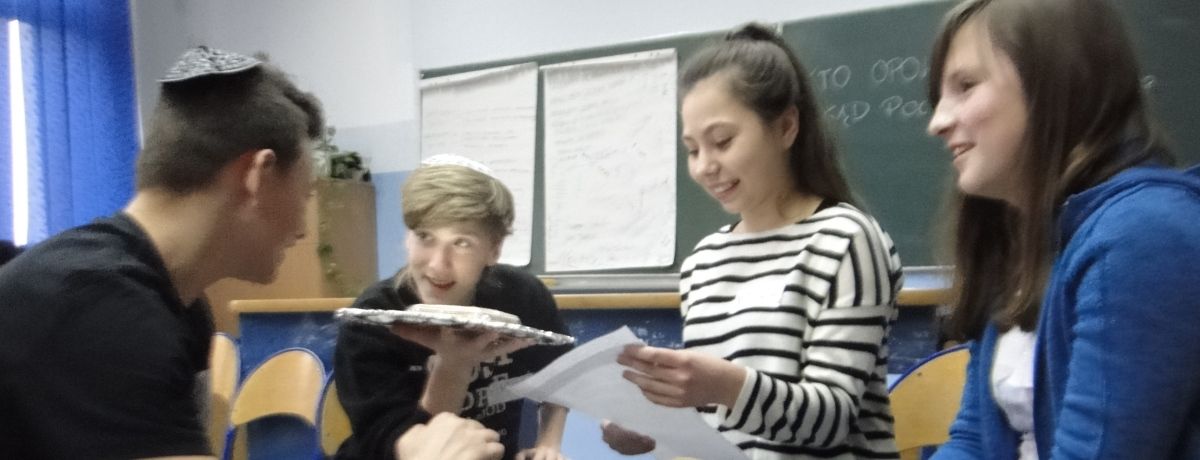Chmielnik
General Kazimierz Tanski Junior High School


“To remember is to exist”. This is the title of a film made by the Junior High students from Chmielnik as part of the School of Dialogue program. During the workshops, led by the Forum for Dialogue educators, the students realized that Jews constituted 80% of the pre-war community of their town and had lived in Chmielnik for centuries. The first Jews settled here already in the 16th century. In 1634, they built the first synagogue and a cemetery. At the turn of the 18th and 19th century, Hasidism developed in Chmielnik. In the first half of the twentieth century, Jews represented 80% of the total population of the town. In 1941 Germans set up a ghetto. Later on, part of the Jews from the ghetto were deported to a work camp in Skarżysko Kamienna, yet the majority was murdered in Treblinka.
Only 500 Jews from Chmielnik survived the war but none of them decided to stay here. The war brought devastation to the greater part of Chmielnik, including both Jewish cemeteries.
How to remember and how not to forget? A group of rather young junior high students demonstrated a lot of maturity and engagement in the project with the goal to bring back the memory of the Jews from Chmielnik. The students met Mrs. Edyta Sokołowska, a tour guide from the “Świętokrzyski shtetl” Museum and Education Center, created in 2013 and located in the synagogue building. The teenagers felt a great need to share the Jewish history of Chmielnik with the city residents.

During a walking tour that they organized, both boys and girls guided the participants along the “Memory Lane”, which passed by the old synagogue, now “Świętokrzyski Sztetl”, continued to the so-called “Shadow House” at the old Jewish cemetery and the memorial plaque with a symbolic “Memory Tree”. The walking tour stopped at the market square in Chmielnik where the beautiful pre-war houses still stand. The tour participants also walked the streets which during the war were part of the ghetto set up for the Jewish residents. The next stop was the cemetery at Mrucza Street. They also passed by the goose monument. Before and after the war, Chmielnik was well known for its signature goose dish. The Jews from Chmielnik enjoyed cooking goose meat, and before the war the Jewish poultry farms were well known not only in Poland, but on the European markets as well.
When the walking tour came to its end, the director of the Cultural Center of Chmielnik encouraged young students to further share their knowledge and maybe organize these walks for other residents in order to raise awareness about the town’s history.
The students from Chmielnik also made a documentary about Mejer Mały, one of the Jewish residents of Chmielnik who now lives in Israel. They had interviewed the oldest residents, and had contacted and interviewed Mr. Mejer Maly via e-mail. Their goal was to get a clear picture of the difficult and beautiful history of the pre-war Chmielnik.
One of the main goals of the School of Dialogue program was to teach us that we are all equal, regardless of culture, origin or faith. I got rid of stereotypes regarding Jews and who they are. I would really like to meet a Jewish person to learn about that person’s origins and his or her perspective of the world around us.
Workshops participant

School:
General Kazimierz Tański Junior High School
Students:
1st and 2nd year students
Teachers:
Barbara Rogala-Kupczewska, Anna Waga
Expert:
Edyta Sokołowska
Educators:
Adam Gąsecki, Karolina Kochanowska
In appreciation to the Conference on Jewish Material Claims Against Germany (Claims Conference) for supporting this educational program. Through recovering the assets of the victims of the Holocaust, the Claims Conference enables organizations around the world to provide education about the Shoah and to preserve the memory of those who perished.

Program co-financed from the funds granted by Citizens for Democracy program, financed through the EEA grants.

In appreciation to Friends of the Forum for supporting the School of Dialogue educational program.
